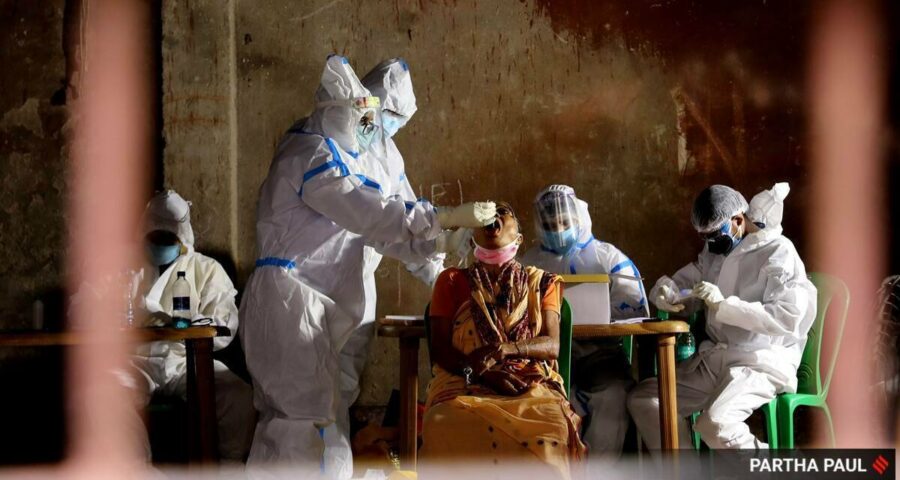Handling migrant workers returning from big metro cities was among her major challenges, says Rekha.
“We had to start from scratch, right from teaching both children and adults how to properly wash their hands,” says Rekha, 39, a mitanin or community health volunteer in Chhattisgarh’s Dantewada district. “People here use ash or soil to clean their hands. It was tough to convince them to use soap… In some villages, people were not allowing outsiders to enter,” she adds.
In areas like Chhattisgarh, mitanin like Rekha served as a crucial link between villagers and medical staff in remote areas of the country amidst Covid.
Rekha received a three-day training in March, before being made charge of two neighbourhoods in Kuakonda Block.
Every Tuesday and Thursday, she continues to set out with a bag of essential medicines such as paracetamol and ORS sachets. “We have to see if anyone has a cough or fever, and then alert health workers, who then test them,” says Rekha, a mother of two teenagers.
Handling migrant workers returning from big metro cities was among her major challenges, says Rekha. “Nobody wanted to stay in quarantine centres, they wanted to return home. I would have to convince, cajole and even scold them. Once, I stood guard outside the quarantine centre to stop a worker from meeting his wife and newborn,” she recounts. Eventually, most people came around, says Rekha.
What came easily was social distancing, she says. “Our homes are built far apart. Older men who get together now sit in bigger circles,” she says.
Rekha is hopeful about 2021, especially with the vaccine near. She has registered for it on a state government portal, along with two lakh frontline workers. “There was a time when polio was rampant, and families would believe it was God’s way of punishing us. Once the Covid-19 vaccine is here, we will all have a good laugh about how a virus forced the world to shut down,” he smiles.
Source: Read Full Article


